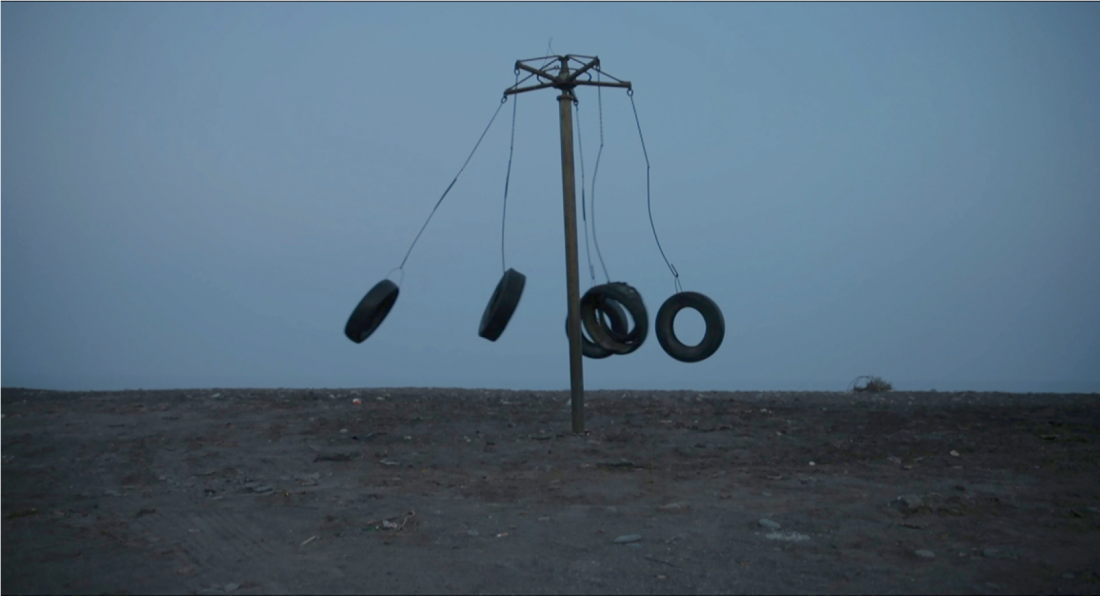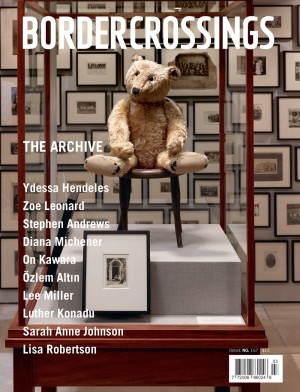Sarajevo Film Festival
Between 1991 and 1995, Sarajevo was under siege. International press flooded into the city, clamouring for images of Balkan suffering to transmit to a rapt, but largely apathetic, global audience, creating what French theorist Jean Baudrillard referred to as a “hyperreal hell.” Television screens flashed with images of empty streets and blasted structures in the beleaguered city, because, as critic Manuela Gandini reminds us, under the “obsessive eye of sensationalism, it is not life that matters, but death.”
But life did continue in Sarajevo, driven underground, away from the world’s watchful eyes. The displaced energy of the city exploded instead into the space of art. In 1995, while still under siege, the Obala Art Centar launched the first Sarajevo Film Festival with hopes of rekindling the city’s battered cosmopolitan spirit. Fifteen thousand people attended the inaugural festival, seeking respite from the banal violence of life amid war.

Still from Mr. Gay Syria, directed by Ayse Toprak. © Bradley Secker.
Now in its 23rd year, it has become the premier festival in the region, with a focus on southeast Europe and the South Caucasus. As a protest against the curtailment of life under siege, questions of history, identity and belonging are inextricably woven into the fabric of the festival. And it is for this reason that, despite having all the hallmarks of a large international festival, it remains somewhat different in tone and texture. This is evident in the emotionally charged, and often unevenly translated, Q&A sessions filled with personal testimonies; and the theatre stairs are littered with extra bodies for the oversold afternoon showings.
Because of its relationship to difficult history, the Sarajevo Film Festival bears the responsibility of grappling with issues of global rights and freedoms. For the ninth year in a row, it hosted Human Rights Day in partnership with the Government of Switzerland. The winner of this year’s Human Rights Award, Mr. Gay Syria, is the heart-wrenching first feature documentary from director Ayse Toprak, which follows the lives of LGBTQ+ Syrian refugees in Turkey—stateless and suffering increasingly limited mobility. In the film Mahmood Hassino, a Berlin-based lawyer and the founder of Syria’s LGBTQ+ movement, has travelled to Turkey to stage the first Mr. Gay Syria pageant among the refugees there in hopes of publicizing their plight. Husein, a barber in Istanbul and a married father of two, has spent his life commuting between his two worlds before capturing the title of Mr. Gay Syria. The threat to their lives is real; some characters, such as Husein’s wife, are expertly filmed to preserve their anonymity. Yet, despite these tightening restrictions, their claustrophobic but vivid lives thrum onscreen and throughout the streets of Istanbul.

Still from In Praise of Nothing, directed by Boris Mitić © 2017 Dribbling Pictures.
Similarly depicting life at the margins, Romania’s haunting MEDA or The Not So Bright Side of Things was awarded the Heart of Sarajevo prize for Best Director (Emmanuel Pârvu) and Best Actor (Serban Pavlu). Newly bereaved villager Doru (Serban Pavlu) is barely managing in the wake of his wife’s death and must now contend with the possibility of losing his adopted daughter, Meda. In this sparsely shot pastoral tragedy, quiet desperation crescendos as Doru is obliged to choose between the law and what he holds dear.
Decidedly more upbeat is Croatian director Boris Mitić’s philosophical exploration about nothing. In Praise of Nothing is playful but intertextually rich, narrated in simple lyrical verse by a snarling, glib Iggy Pop. Featuring footage by 62 cinematographers from 70 countries, it delivers crisp, striking landscapes most commonly associated with large-scale nature documentaries, rather than Nothing’s tempestuous brush with humanity. After the screening, Mitić revealed plans for the pseudo-documentary to be translated into various languages, each featuring a distinct, regionally voiced, titular character.
The Sarajevo Film Festival is perhaps strongest when it cleaves closest to the bone—addressing the horror of its recent history, the aftershock of which is still felt today. For a second year, the festival continues to broaden its “Dealing with the Past” initiative, presented in partnership with Al Jazeera Balkans. Along with a selection of films that speak to, and about, the collapse of Yugoslavia, the project encompasses the True Stories Market: an open-source platform that brings organizations researching the impact of war crimes together with industry professionals to ensure these stories reach wider audiences.

Still from In Praise of Nothing, directed by Boris Mitić © Chloe Rodriguez for Dribbling Pictures.
In Nostalgia, directed by Ervin Tahirović, a Bosnian child refugee living in Austria, he recounts his first visit back, in 16 years, to his hometown of Foća, which now belongs to the Republic of Serbia. We follow Tahirović as he attempts to retrace his family’s eventual journey out of the country. He grows at turns frustrated and tearful, encountering the impossibility of such a return. Things are not as he remembered them, and the people who assisted his family are long gone, even their towns forgotten. At the particularly moving Q&A that followed, audience members reiterated the importance of telling stories about displacement, invisibility and the pull to “come home,” even, and especially, when you do not know what you are coming home to.
In the last 23 years, the Sarajevo Film Festival has come to represent the renewed hope of the city and the region, and a life beyond the trauma of war. But not without its memory. Instead, it offers that the past can build bridges as well as destroy them, and is a testament to the ability of art to restore humanity in the face of terror. It is here we see most clearly what Gandini refers to as the “Sarajevo spirit, where Muslims, Catholics, Orthodox Christians and Jews have been living together for centuries, exchanging culture and maintaining their own traditions, a people with no intention of dividing under the deadly pressure of ethnic cleansing.” In this oversold theatre, in the afternoon heat, we choose to be, and to witness, together. We choose to be together in spite of what has come before us and in anticipation of what will follow. ❚
The 2017 Sarajevo Film Festival was held in Sarajevo, Bosnia and Herzegovina, from August 11 to August 18, 2017.
Dunja Kovačević is a writer and editor in Winnipeg. She recently completed an MA in Cultural Studies from the University of Winnipeg.

